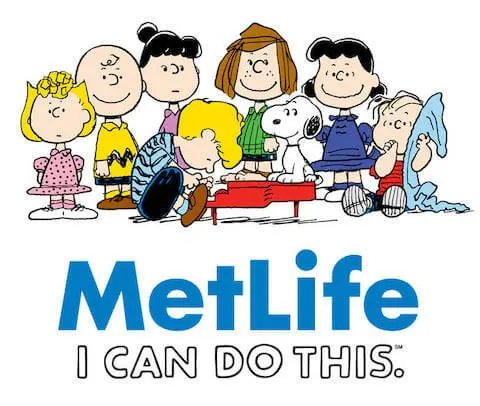The One Competitor Your Startup Forgot About

Startup Competition is Good
Startups are competitive by nature. They are out to solve a problem or change the world in an innovative way. As they take on funding, acquire paying customers, and generate revenue, others notice, and the competition heats up.
This competition drives innovation and keeps the startup on top of its game—less it gets overridden by a competitor with a superior product or approach.
As a result, the product or service the startup is offering continually gets better and better.
Back in 2007, at my 2nd startup, ParentsClick (I was co-founder and CTO), we were in the middle of MothersClick version 3 (our flagship product). We were competing against a number of competitors that I’ll describe below. Each and every one forced us to think more critically about our own offering and pushed us to continually up our game and “do more faster”.
But ultimately, our biggest competitor was the least obvious one. It was one we almost forgot about. It was one we should have focused on more. It was one that almost every single startup that pitches me forgets about too.
Direct vs Indirect Competition
Direct Startup Competition
Every startup has (or will have) direct competitors. These are the competitors that are targeting the same users, in the same market, with a very similar product or service offering.
In the case of MothersClick, we had 3 startups, amongst dozens, that we considered our most important, direct competition.
- CafeMom: Formerly, ClubMom, co-founded by Melrose actor Andrew Shue, which in 2007, became CafeMom. For months, we’d release new features and see the same implementations the next day on CafeMom. Then we’d see features they would release and we’d copy too. It was a features’ arm race. With over 120 employees today, CafeMom is a thriving business.
- Maya’s Mom: Raised around $1M from True Ventures and Jeff Clavier (before SoftTech) and started within a few months of us. Ultimately acquired by BabyCenter within a year of starting.
- Minti: Our counterpart from down under, was based in Australia and raised $1.2M. I’m not sure what happened to them, Google results are sparse.
Interesting note: As I was typing this I realized an interesting fact. All of our biggest, direct competitors were well funded. We weren’t—Dietrich and I had bootstrapped the company. We’ve also had the highest acquisition price to date, though, I’m quite positive CafeMom will top us someday.
Indirect Startup Competition
Less obvious to many startups, is the indirect competition. These are the competitors that are operating in the same space, targeting similar users, but usually offering a different product or service.
In the case of MothersClick, we had tons of these. Much more than the direct competitors. We constantly monitored these to see who, if any, were starting to pivot or add features directly competitive to us.
A few of the larger, indirect competitors:
- PopSugar: Now a behemoth with over 20MM monthly uniques, back then was focused on content for women. It didn’t have the strong parenting focus that MothersClick had, but it targeted the same types of women. Eventually, PopSugar acquired Circle of Moms to directly offer very similar parenting features.
- Babble: A magainze-esque site, this was more of a competitor to PopSugar than MothersClick, but nonetheless, targeted the same audience. It later started to focus more on moms and bloggers, and then was acquired by Disney.
- ParentsConnect: Started at MTV, ParentsConnect was a borderline direct/indirect competitor. It offered many of the same features we had, but had a more celebrity / MTVish focus on parents–for both moms and dads. They eventually shutdown.
- BigTent: This was our biggest indirect competitor. BigTent focused on tools to help groups manage themselves. While any organizational group could signup, they had a niche user base of moms groups. Their group features were superior to ours, but they were more narrowly focused. They were eventually acquired by Federated Media.
The One Startup Competitor You Forgot About: The Status Quo
This is the competitor that almost every startup forgets about. Yet, it is largely one of the most important. The status quo.
The average user is set in their ways. They find what works, and stick to it. Change requires effort, can be unknown and possibly feared, and disrupts old habits. As such, these folks, stick to what works—instead of trying out your awesome new product or service. And this is despite the most clever marketing that focuses on the benefits of your product or service.
At MothersClick, our biggest competitor, was in fact, the status quo. It was Yahoo Groups. Moms loved it. It was simple. They could access it from their email. It just worked. Sure, it had a significant number of disadvantages to MothersClick, but for a busy mom, that didn’t matter.
One of the biggest mothers groups we targeted was the Golden Gate Mothers Group (GGMG), with over 4000 members. And what did they use? Yahoo Groups. Our platform offered them significant advantages for their members. All of the same features and tons more. And way more benefits.
We never could get them to move over to MothersClick, despite many conversations. The status quo won out.
Oddly enough, since our acquisition, GGMG, migrated over to BigTent, which was our biggest indirect competitor!
Key Takeaways for Startups
So if you’re reading this and are in a startup, here are the cliff notes about startup competition:
- When you pitch investors, make sure to reference all 3 types of competition: direct, indirect, and the status quo.
- Don’t just focus on the direct competitors. Focus on the status quo, and keep your guard on the indirect ones. In the case of my last startup, we lost our most ideal mom’s group to the status quo, and later to our biggest indirect competitor.
- The better you understand and acknowledge your competition, the better you’ll understand the market, how to navigate, and ultimately how to succeed. In the case of my last startup, we had the 2nd best outcome out of any of direct competitors, and we kept a keen eye on the competition.
- Never say you have “no competition”; at the very least, there is the status quo.
- In the end, don’t obsess over the competition. But be aware it exists. Your investors need to know that. Here’s why you shouldn’t worry too much about the competitionn (hint: you’re more likely to put yourself out of business than a competitor is; at MothersClick, our competitors that went out of business weren’t because of us).
- Lastly, it took about 6 years for this entire social networking space for moms to mature. 2 business are still standing strong: CafeMom and PopSugar. Some were acquired (including us), and many shutdown. That’s true of competition in any market: stay in business, be acquired, or shutdown.
Ted Serbinski Newsletter
Join the newsletter to receive the latest updates in your inbox.


